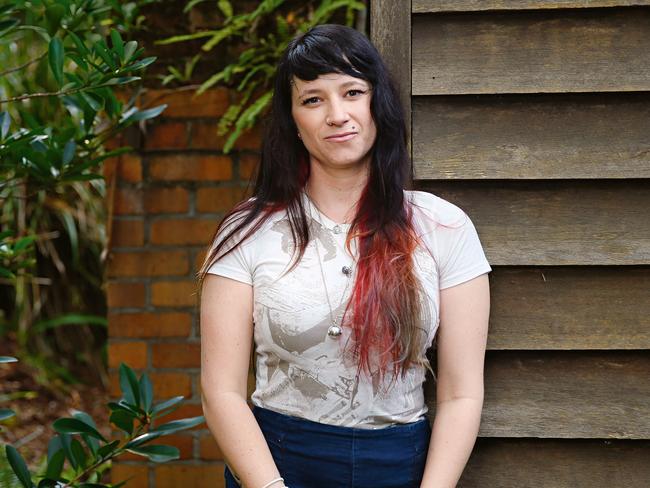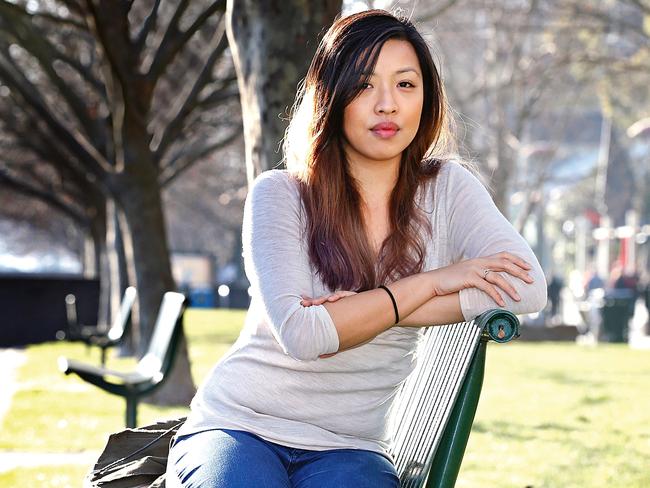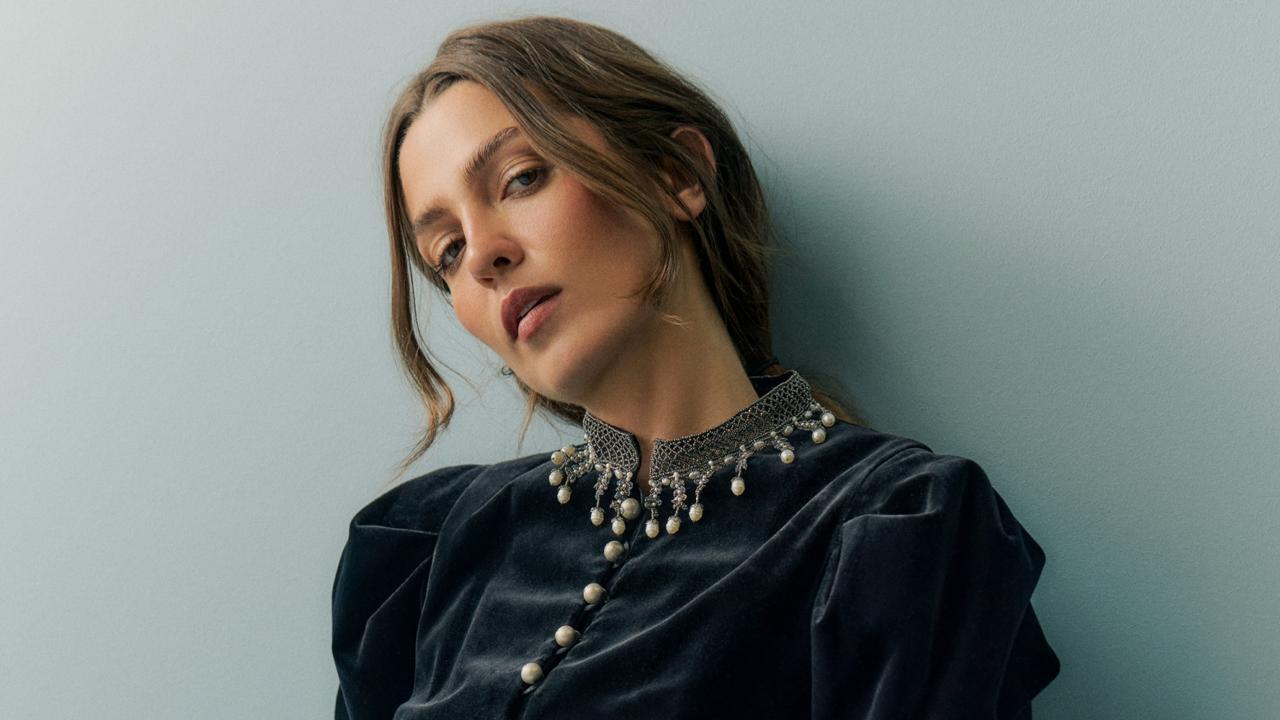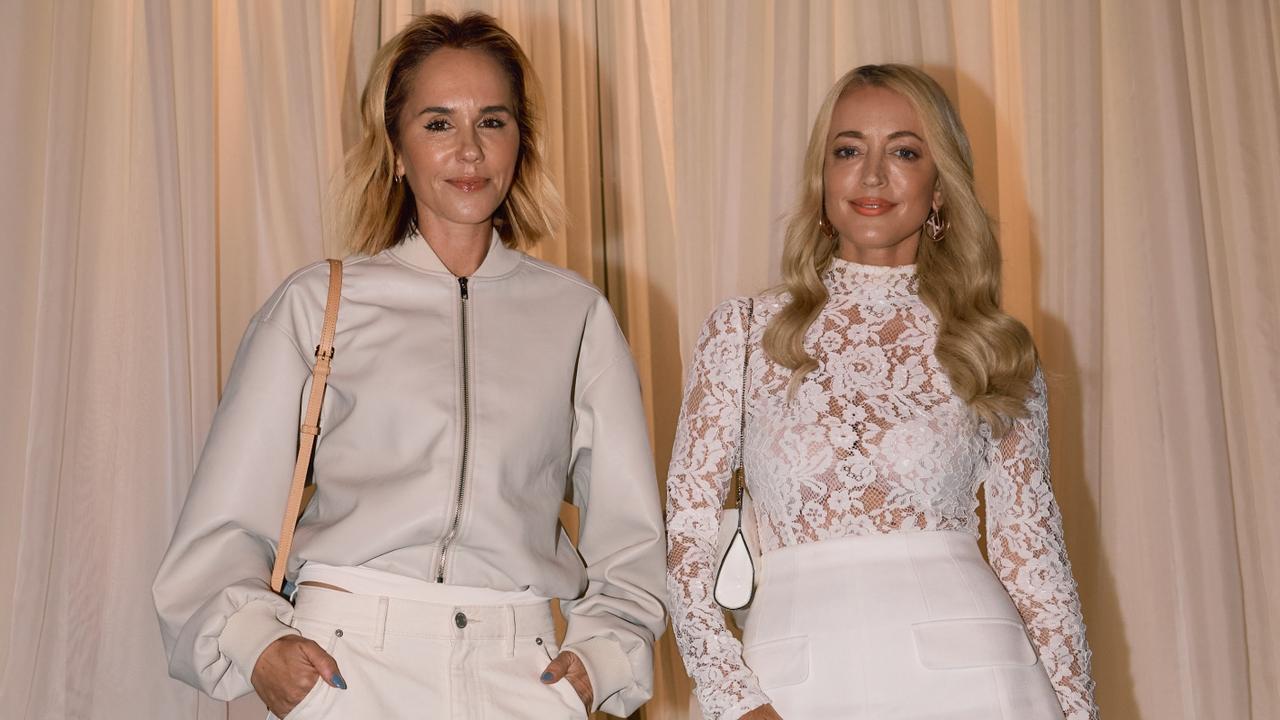Does marrying young lead to divorce?
DIVORCE rates in Australia are highest among twenty-something newlyweds. Three young women who were all married and divorced by 30 share their stories.

Stellar
Don't miss out on the headlines from Stellar. Followed categories will be added to My News.
“DID they really give it their best shot?” There’s a stigma attached to being a young divorcee. And Kim Kardashian’s 72-day marriage to basketballer Kris Humphries, the 55 hours Britney Spears spent lawfully bound to childhood friend Jason Alexander, and Nicky Hilton’s three months of wedlock to businessman Todd Meister didn’t do Gen Y’s reputation for commitment any favours.
But the stats don’t lie: the younger we marry, the more likely it is to go pear-
shaped. Census data from the Australian Bureau of Statistics shows young married couples have the highest rate of divorce. The data also tells us most people tend to part after four years, and divorces with dependent children have decreased significantly, indicating married couples without children are “getting out early”.

Experts say bowing out of a rocky relationship sooner rather than later has its benefits. Dr Belinda Hewitt, from the University of Queensland, studies marital separation and says it can influence future relationships positively.
Often, transition times in relationships are when the wheels fall off
“It’s harder to be divorced older. Studies show you’re far more likely to re-partner successfully if you’re younger when you first divorce,” explains Hewitt. “By your late 30s, most people are taken — or are likely to have had a divorce or children. That makes re-partnership more difficult.”
Marrying in your 20s is risky. Hewitt says under-25s who wed or live together are five times more likely to break up. “The parts of our brains that control our ability to think things over, not be reactive, not engage in risky behaviour, aren’t fully developed for a lot of people until their mid-20s,” she says. “And most people aren’t financially ready [to marry] before 25 — they’re completing schooling or entering work.”
Relationships Australia Queensland manager Valerie Holden says young couples try counselling during times of change. “Often, transition times in relationships are when the wheels fall off,” she says. “For example, the birth of a child, a new home, changing jobs.”
New technology also plays a role in relationship stress. “Social media plays a big part in trust issues,” she says. It’s hard when, say, “the ex-girlfriend is still able to creep into [a couple’s] lives”.
Divorce in young people, however, doesn’t necessarily create a bitter feud. Separation specialist Alvia Turney from Act4Tomorrow says young couples tend to split more amicably than older people. “They’re definitely more accepting if the relationship isn’t working,” says Turney. “Especially those without children; they want to cut their losses and move on.”
Turney has assisted in separations for couples as young as 23, and with marriages as short as eight weeks. She says older generations are more likely to stay in troubled relationships: “Older people often judge younger people, thinking they don’t try hard enough. But why waste a moment of your life?”
“AFTER NINE YEARS TOGETHER, I CAME OUT ...”

At the age of 22, Megan Luscombe married her long-term boyfriend because “it’s what people expected”.
Coming from a big family, Luscombe says that, despite there being a lack of commonality and sexual chemistry in the relationship, she got hitched because all her siblings had done so at around the same age. And her boyfriend was 10 years older, adding an extra pressure for her to walk down the aisle.
This is something my former partner and I always talked about — he knew I’d been with women
“I didn’t really have the guts to speak up about how I was feeling,” the 29-year-old Melburnian says. “I just followed what I thought I should do and didn’t have anyone asking if this is what I actually wanted to do.”
But after nine years together and less than two years of marriage, Luscombe came out to her husband, whom she says was “more of a best mate”.
“I identify as lesbian,” she says. “This is something my former partner and I always talked about — he knew I’d been with women. He had this running joke that I was ‘probably a lesbian’. I think it was a coping mechanism for him — it must be quite confronting to be with someone who hadn’t always been with people the same sex as you.”
Luscombe says she should have faced facts earlier, but it was too frightening. “It took me a lot of time to get the courage to actually do it. But when it did eventually happen, it was very amicable. I was very fortunate; he was amazing and said, ‘You need to do what makes you happy. You shouldn’t live a half-life.’”
Her fears around divorce were soon superseded by fears of coming out. “My family were awesome … [but] I lost some friends. People weren’t able to say what they were thinking, but I heard things. There might’ve been homophobia.”
Luscombe doesn’t see their split as a failure. “The divorce was the first time I was calling the shots and doing what I wanted to do,” she says. “It was a part of my life I have fond memories of — I learnt how I wanted to be in a relationship.”
Now engaged to her girlfriend, whom she met two years after her separation, Luscombe says she’ll wed again if same-sex marriage is legalised in Australia.
“WE DIDN’T HAVE SEX ON OUR WEDDING NIGHT”

Leea Gilmour and her boyfriend of three years were more like friends than lovers. The 34-year-old, who married 10 years ago, says the pair made one another laugh, but lacked a sexual connection.
“We always had this great non-physical relationship,” says Gilmour, who lives on the Sunshine Coast. “I knew marrying wasn’t the right thing, but it was like a runaway train. It’s telling that we didn’t have sex on our wedding night. I wanted to, but I couldn’t. Little things he’d been doing had been putting me off so much that I couldn’t even stand to look at him.”
Her husband’s debt was a source of arguments, too, and the relationship worsened when Gilmour told her husband she had an eating disorder. “I said, ‘I’ve had bulimia for nine months.’ He said, ‘F*cking hell, Leea, you’re a pain in my arse.’ I felt so alone.”
Divorce is easy; it’s a decision, a year and a day, and a signature
Then an opportunity for the couple to work overseas as crew on the TV series Survivor filled her with hope. “That was exciting, and when we got back we were going to start trying for kids.” But their new life overseas didn’t save the pair.
While abroad, Gilmour suggested a trial separation, but it was all or nothing for her husband, so they agreed to split after one year of marriage.
“I thought, I’m about to break his heart but I can’t pretend to have a marriage for the rest of my life based on friendship but no respect. If I think I can go without sex for the rest of my life, I’m kidding myself.
“Divorce is easy; it’s a decision, a year and a day, and a signature. The separation of your life — your house, your stuff, your travel memories, your photographs — that’s what can destroy you. You think you can’t do this by yourself, but you can.”
Gilmour has now found love with a new partner: “I have the greatest relationship. You couldn’t have told me when I was breaking up with my husband that it would be possible.”
“I KNEW MY PARENTS WOULD NEVER GO FOR IT”

After a year of marriage, Susan Hong began to consider calling time sooner rather than later. She’d married in her late 20s to a man she’d met through friends.
“Our values were what gelled us together,” says Hong, now 31 and living in Melbourne. As both were from traditional Asian families, they didn’t live together during their four-year relationship — but she says that wasn’t the problem. Rather, their shared goals shifted. “We talked about kids and our views changed. I wanted to adopt as well as having my own, but after we married, he changed his mind about adoption.”
This caused arguments that, along with their stubborn personalities, led to Hong’s decision to end the relationship. “It was a surprise for him,” she says. “We tried counselling, but I didn’t think he was being honest during the session. If you’re not going to put it on the line, there’s no point going through therapy.”
This might sound a little corny, but I learnt how strong I could be
So four months after Hong said she wanted to leave, her husband agreed to separate. “We’d only just got married, there were no kids, we hadn’t bought a house … it was very clean. The best time to do it was now, rather than wait.”
Announcing the split was tough. “When you consider everyone put so much time and effort into the wedding, and all the money …” says Hong. “Coming from a traditional, strict family, I knew my parents would never go for it.”
She was right: her parents tried to talk her out of leaving. Eventually, however, they came around.
Friends were quick to take sides, with many not supportive of Hong, something she partly blames herself for. “I internalised a lot and dealt with it on my own, whereas he confided in friends.”
After a year of separation, Hong recently filed for divorce.
As for dating, she’s taking an “if it happens, it happens approach”, while enjoying a new-found resilience. “This might sound a little corny, but I learnt how strong I could be.”
Originally published as Does marrying young lead to divorce?


